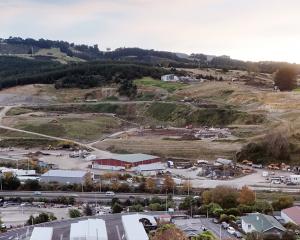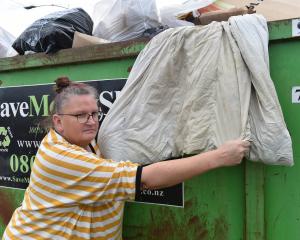People challenging accident compensation decisions in court often fail to get proper access to legal information, evidence or experienced lawyers, and feel they are not being heard.
Those are the findings of a Dunedin study which has identified ''widespread and systemic barriers to access to justice''.
The study was undertaken by researchers working with the University of Otago Legal Issues Centre, on behalf of ACC claimant support group Acclaim Otago.
The report said Government officials had previously considered the symptoms of problems with ACC-related court appeals - including costs and delays - but had not investigated the real causes.
The report, titled ''Understanding the problem: an analysis of ACC appeals processes to identify barriers to access to justice for injured New Zealanders'', was delivered to the Minister for ACC, Nikki Kaye, two weeks ago.
This week the Government put on hold plans for a new tribunal to consider appeals against ACC decisions.
The report lead author, Dunedin lawyer Warren Forster, said yesterday the Government's response to the research was ''great news''.
It signalled ''a tipping point for implementing disability rights into our law''.
Ms Kaye and Courts Minister Amy Adams had shown ''strong leadership'' by removing the proposed ACC Appeal Tribunal from the Courts and Tribunals Efficiency Systems Bill, and by committing to ''meaningful consultation with injured people'', Mr Forster said.
Until recently, officials had signalled they would replace ACC-related appeals through the courts with a tribunal.
New Zealand, which lobbied for an international convention on the rights of people with disabilities, has itself been in the UN spotlight for its track record.
A UN committee monitoring the Convention on the Rights of Persons with Disabilities recently suggested this country adopt a human rights approach to ACC-related access to justice issues.
Mr Forster said given New Zealand had championed the convention, he was pleased it was now taking its obligations seriously.
''The Government, injured people and researchers now have an exciting opportunity to work together to address the real problems,'' Mr Forster said.
Research group representatives, including Mr Forster and Acclaim Otago past-president Dr Denise Powell, will meet Ms Kaye next Wednesday to discuss the report.
Prof Mark Henaghan, Otago University dean of law, and acting director of the Legal Issues Centre, said the researchers examined more than 500 written decisions of the District Court, High Court and Court of Appeal made between 2009 and 2015.
Backed by a $37,000 grant from the Law Foundation, the researchers aimed to identify barriers to access to justice faced by people seeking to dispute ACC decisions through the statutory dispute resolution process in the courts.












